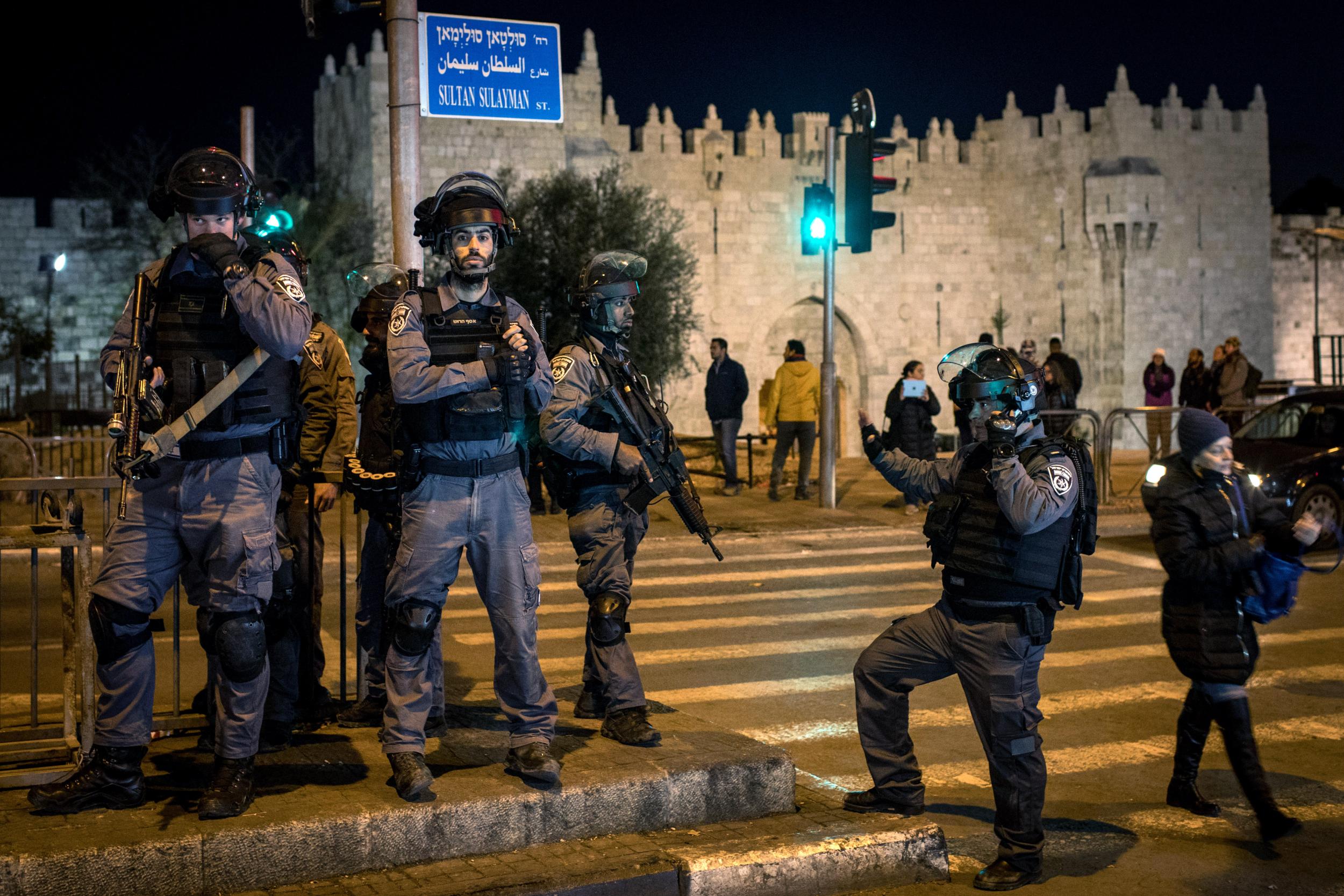Jerusalem latest: West Bank clashes after Donald Trump announcement
Observers remain hopeful the low levels of violence mean Friday's 'Day of Rage' will also pass without major incident

Several people have been injured across the West Bank and Gaza Strip after protests against US President Donald Trump’s decision to recognise Jerusalem as Israel’s capital turned violent.
Schools and shops across the Palestinian Territories were shuttered on Thursday as young men in several cities including Ramallah and Bethlehem took to the streets in demonstrations against the move.
Hundreds of extra Israeli troops were dispatched to occupied areas, with minor clashes breaking out at checkpoints and in city centres. Palestinians threw rocks and other projectiles and set tires on fire as Israeli troops reportedly fired tear gas, rubber bullets and live bullets to disperse crowds. The Israeli Ministry denied live fire had been used.
The Palestinian Red Crescent said that 17 people had been lightly injured as a result of tear gas inhalation and one person was in a critical condition thanks to live fire.
US President Donald Trump shocked even some of the US’ closest allies on Wednesday by announcing that his administration would formally recognise the contested city as Israel’s undivided capital.
Israel annexed east Jerusalem in the 1967 Six Day war, a move that was regarded as illegal by the international community. Both Israelis and Palestinians claim the holy city as their undivided capital.
Mr Trump's Wednesday announcement upended decades of US policy. While welcomed by Israeli Prime Minister Benjamin Netanyahu, many other world leaders have expressed concern the controversial move could spark renewed violence in the region and wider Muslim world.
Israel: From independence to intifada
Show all 7Several US allies - including the UK, France and Saudi Arabia - have publicly disagreed with the move, and there have been solidarity protests across the Middle East and north Africa.
On Thursday, Hamas’ leader Ismail Haniyeh called on the Palestinian people to rise up in a new intifada.
“We should call for and we should work on launching an intifada in the face of the Zionist enemy,” he said in a speech from Gaza on Thursday.
“This will not stop until the liberation of Jerusalem and the West Bank,” he added.
Palestinian and Israeli civilians, as well as the Israeli armed forces, are bracing themselves for Hamas’ declared ‘Day of Rage’ on Friday.
More protests and strikes in Jerusalem are expected - and the Muslim holy day is often a test for whether such demonstrations turn violent.
An intifada cannot be called or commanded by Palestinian leaders. While both Fatah and Hamas encouraged the two previous uprisings, the movements grew out of grassroots mass Palestinian support.
Is too early yet to tell whether protesters will take up Hamas’ call. Observers remain hopeful the low levels of violence seen on Thursday mean Friday will also pass without major incident.
Subscribe to Independent Premium to bookmark this article
Want to bookmark your favourite articles and stories to read or reference later? Start your Independent Premium subscription today.

Join our commenting forum
Join thought-provoking conversations, follow other Independent readers and see their replies